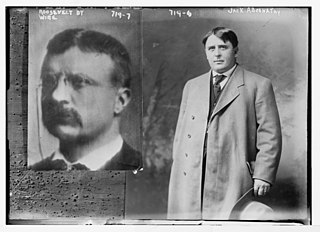
Boone is a town in and the county seat of Watauga County, North Carolina, United States. Located in the Blue Ridge Mountains of western North Carolina, Boone is the home of Appalachian State University and the headquarters of the disaster and medical relief organization Samaritan's Purse. The population was 19,092 at the 2020 census.

Watauga County is a county located in the U.S. state of North Carolina. As of the 2020 census, the population was 54,086. Its county seat and largest community is Boone. The county is in an exceptionally mountainous region, known as the High Country. It is the home of Appalachian State University, which has approximately 20,023 students as of August 2020. Watauga County comprises the Boone, NC Micropolitan Statistical Area.

Elizabethton is a city in, and the county seat of Carter County, Tennessee, United States. Elizabethton is the historical site of the first independent American government located west of both the Eastern Continental Divide and the original Thirteen Colonies.

Appalachian State University is a public university in Boone, North Carolina. It was founded as a teachers college in 1899 by brothers B. B. and D. D. Dougherty and the latter's wife, Lillie Shull Dougherty. The university expanded to include other programs in 1967 and joined the University of North Carolina System in 1971.

John Sevier was an American soldier, frontiersman, and politician, and one of the founding fathers of the State of Tennessee. A member of the Democratic-Republican Party, he played a leading role in Tennessee's pre-statehood period, both militarily and politically, and he was elected the state's first governor in 1796. He served as a colonel of the Washington District Regiment in the Battle of Kings Mountain in 1780, and he commanded the frontier militia in dozens of battles against the Cherokee in the 1780s and 1790s.

Gerard Francis Conway is an American comic book writer, comic book editor, screenwriter, television writer, and television producer. He is known for co-creating the Marvel Comics vigilante antihero the Punisher as well as the Scarlet Spider, and the first Ms. Marvel, and also writing the death of the character Gwen Stacy during his long run on The Amazing Spider-Man in the story arc, "The Night Gwen Stacy Died".

California State University, Channel Islands is a public university in Camarillo, California. It opened in 2002 as the 23rd campus in the California State University system. CSUCI is located on the Central Coast of California, at the intersection of the Oxnard Plain and northernmost edge of the Santa Monica Mountains range. The Channel Islands are nearby where the university operates a scientific research station on Santa Rosa Island.

The Cherokee National Forest is a United States National Forest located in the U.S. states of Tennessee and North Carolina that was created on June 14, 1920. The forest is maintained and managed by the United States Forest Service. It encompasses an estimated area of 655,598 acres (2,653.11 km2).

The Watauga River is a large stream of western North Carolina and East Tennessee. It is 78.5 miles (126.3 km) long with its headwaters in Linville Gap to the South Fork Holston River at Boone Lake.

The Overmountain Men were American frontiersmen from west of the Blue Ridge Mountains which are the leading edge of the Appalachian Mountains, who took part in the American Revolutionary War. While they were present at multiple engagements in the war's southern campaign, they are best known for their role in the American victory at the Battle of Kings Mountain in 1780. The term "overmountain" arose because their settlements were west of, or "over", the Blue Ridge, which was the primary geographical boundary dividing several of the 13 American states from the Native American lands to the west. The Overmountain Men hailed from parts of Virginia, North Carolina, and what is now Tennessee and Kentucky.

The Watauga Association was a semi-autonomous government created in 1772 by frontier settlers living along the Watauga River in what is now Elizabethton, Tennessee. Although it lasted only a few years, the Watauga Association provided a basis for what later developed into the state of Tennessee and likely influenced other western frontier governments in the trans-Appalachian region. North Carolina annexed the Watauga settlement area, by then known as the Washington District, in November 1776. Within a year, the area was placed under a county government, becoming Washington County, North Carolina, in November 1777. This area covers the present day Washington County, Carter County, and other areas now located in the northeast part of the state of Tennessee.

The Sycamore Shoals of the Watauga River, usually shortened to Sycamore Shoals, is a rocky stretch of river rapids along the Watauga River in Elizabethton, Tennessee. Archeological excavations have found Native Americans lived near the shoals since prehistoric times, and Cherokees gathered there. As Europeans began settling the Trans-Appalachian frontier, the shoals proved strategic militarily, as well as shaped the economies of Tennessee and Kentucky. Today, the shoals are protected as a National Historic Landmark and are maintained as part of Sycamore Shoals State Historic Park.

The fauna of the United States of America is all the animals living in the Continental United States and its surrounding seas and islands, the Hawaiian Archipelago, Alaska in the Arctic, and several island-territories in the Pacific and in the Caribbean. The U.S. has many endemic species found nowhere else on Earth. With most of the North American continent, the U.S. lies in the Nearctic, Neotropic, and Oceanic faunistic realms, and shares a great deal of its flora and fauna with the rest of the American supercontinent.

Sycamore Shoals State Historic Park is a state park located in Elizabethton, in the U.S. state of Tennessee. The park consists of 70 acres (28.3 ha) situated along the Sycamore Shoals of the Watauga River, a National Historic Landmark where a series of events critical to the establishment of the states of Tennessee and Kentucky, and the settlement of the Trans-Appalachian frontier in general, took place. Along with the historic shoals, the park includes a visitor center and museum, the reconstructed Fort Watauga, the Carter House and Sabine Hill . For over a thousand years before the arrival of European explorers, Sycamore Shoals and adjacent lands had been inhabited by Native Americans. The first permanent European settlers arrived in 1770, and established the Watauga Association—one of the first written constitutional governments west of the Appalachian Mountains—in 1772. Richard Henderson and Daniel Boone negotiated the Treaty of Sycamore Shoals in 1775, which saw the sale of millions of acres of Cherokee lands in Kentucky and Tennessee and led to the building of the Wilderness Road. During the American Revolution, Sycamore Shoals was both the site of Fort Watauga, where part of a Cherokee invasion was thwarted in 1776, and the mustering ground for the Overmountain Men in 1780.
The Cherokee people of the southeastern United States, and later Oklahoma and surrounding areas, have a long military history. Since European contact, Cherokee military activity has been documented in European records. Cherokee tribes and bands had a number of conflicts during the 18th century with Europeans, primarily British colonists from the Southern Colonies. The Eastern Band and Cherokees from the Indian Territory fought in the American Civil War, with bands allying with the Union or the Confederacy. Because many Cherokees allied with the Confederacy, the United States government required a new treaty with the nation after the war. Cherokees have also served in the United States military during the 20th and 21st centuries.

John Reeves "Catch-'em-alive Jack" Abernathy was an American cowboy, U.S. marshal, and western legend from Bosque County, Texas.

Mountain Men is an American reality television series on the History channel that premiered on May 31, 2012.

Reconvergence is a 2012 documentary film directed by Edward Tyndall featuring the lives and views of four characters: naturalist Eustace Conway, scientist Preston Estep, historian Waite Rawls, and poet Caleb Whitaker. The film features a wide exploration of their views on history, memory, consciousness, and the changes wrought by technologies. The film screened at various American film festivals and was distributed by Mobius Films.

Michael C. Hardy is an American historian and author of Civil War and western North Carolina books and articles.


















